Addition Property: Add like a turkey.
Image
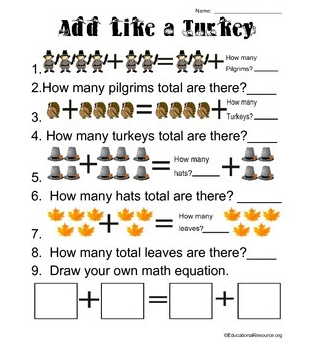
Elementary students will gain a better understanding of the addition property using this Thanksgiving Day activity. EducationalResource.org

Elementary students will gain a better understanding of the addition property using this Thanksgiving Day activity. EducationalResource.org
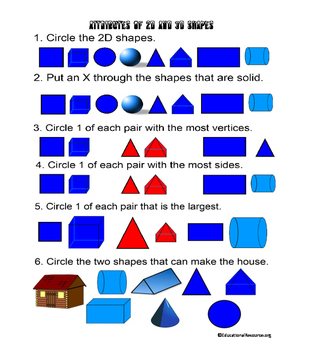
Through this reinforcement math activity students will identify a 2d shape vs. a 3d shape. Shapes included circles, spheres, squares, cubes, rectangles, pyramids, cylinders and cones. Students will also practice determining larger shapes vs. smaller shapes. They will get some practice telling which shape has more vertices than another. Essential questions are What is a shape? How can shapes be identified? What is an attribute? How do we use attributes to draw and compare shapes?
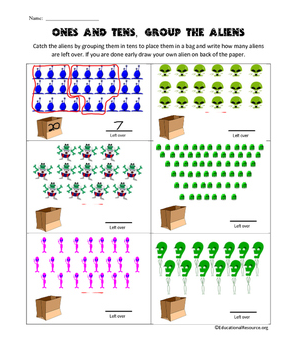
Elementary students will have a fun chance of reinforcing their understanding of the ones and tens places by grouping numbers of aliens in groups of 10 and writing down how many are left over. Students will better understand what whole numbers are and that they can be represented by written symbols and be represented in amounts of tens and ones.
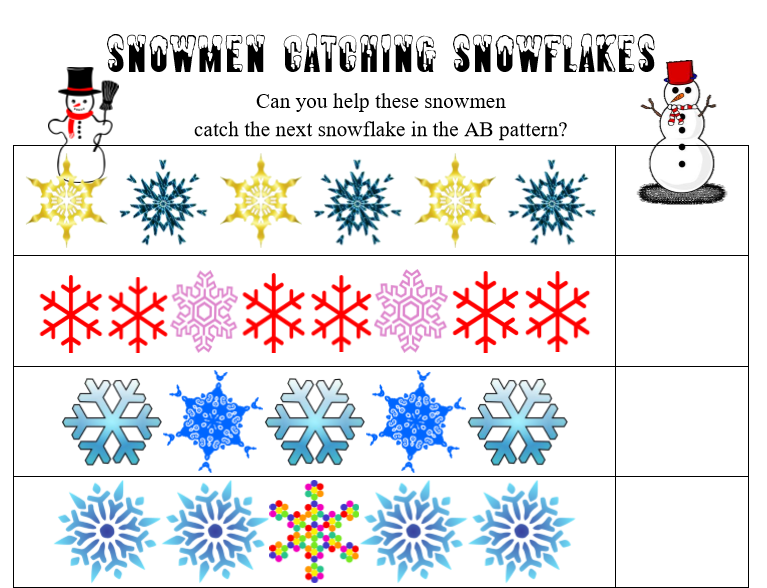
This AB patterns worksheet also comes with an accompanying Smart Notebook section. As a teacher, you can either have the students discover AB patterns as a whole group lesson using your interactive whiteboard, or you can reinforce their ability of AB patterns using the worksheet. Students will also get to cut out and glue the snowflakes onto the worksheet as an activity. There are also a few extra snowflakes they can cut out and create a necklace with if you would like to do an extension activity. This worksheet is great during the winter months.
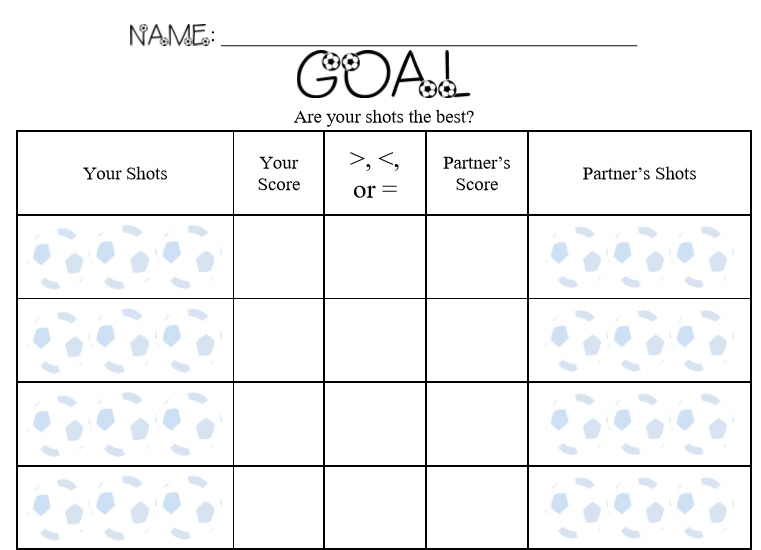
In this addition and comparing numbers math game, students will have an opportunity to reinforce their greater than, less than, and equal to fluency. This is a game where students will roll dice, write those numbers down, add them up, and then compare them to see who has the better shot to score a goal. Once they play 8 rounds they will add up their total wins and those of their partner and then compare the two numbers to see who won the game.
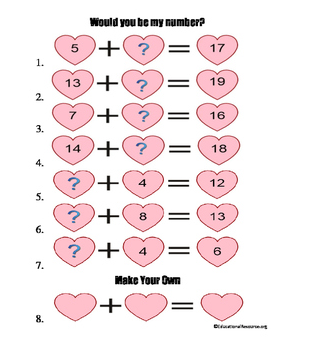
In this 1st-grade math worksheet, students will determine which the whole number is missing from a number sentence. First-grade students will get an opportunity to demonstrate how whole numbers relate to each other in an equation. These numbers range from 1-20 and the math worksheet in a Valentine style, both font, and imagery. There are 8 number sentence questions.
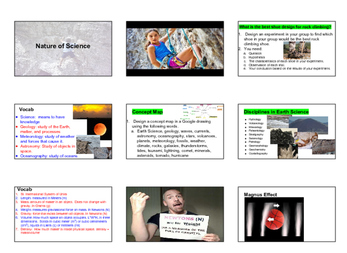
This file includes all of the assignments, instructions, lab notes, labs, worksheets, and presentations to teach the first chapter of Earth science. Students will get the opportunity to explore the scientific method through both hands-on and digital labs.
Included are:
1 presentation in both PowerPoint and Google Doc
5 Earth Science both digital and hands-on labs
Vocabulary words included on the test
3 ways of integrating technology
All of the worksheets and instructions for the labs and assignments.
2 videos
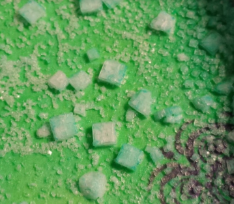
In this 3rd through 10th-grade lab, students will observe the formation of salt crystals. Students will also add food coloring to their dissolved salt solution to demonstrate how chemical impurities can change a mineral's color. If you have enough students doing the lab your class will get to see many different results. This Earth Science lab comes with the student work, student image sample results, and with my own insights and explanations as to how the experiment can work well.
Find more Earth Science labs and lessons at EarthScience.xyz
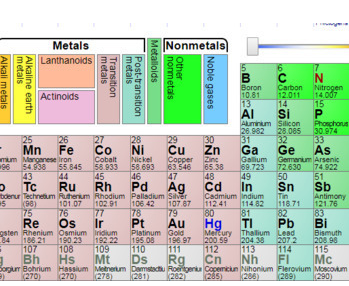
This Google search activity allows students to go to the internet to search for specific minerals and then to use the Periodic Table to discover what elements the mineral is made out of. This activity usually takes a full 50 minutes for the students to find all of the answers. Students will investigate 12 different minerals and which elements make the mineral up. They will look at a periodic table and decide whether the elements are metals or nonmetals. Students will also search the internet and find out some industrial uses for each mineral.
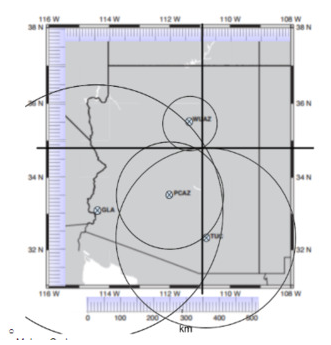
In this Earth Science activity, students will gain a deeper understanding of the following Vocabulary: seismologist, seismograph, seismogram, epicenter, P-Wave, S-Wave, Wave Amplitude, Magnitude, and Richter/Moment Scale.
Students will create a digital spreadsheet that will help them calculate data they gathered by looking at actual seismograms. Technology is incorporated throughout the lesson.